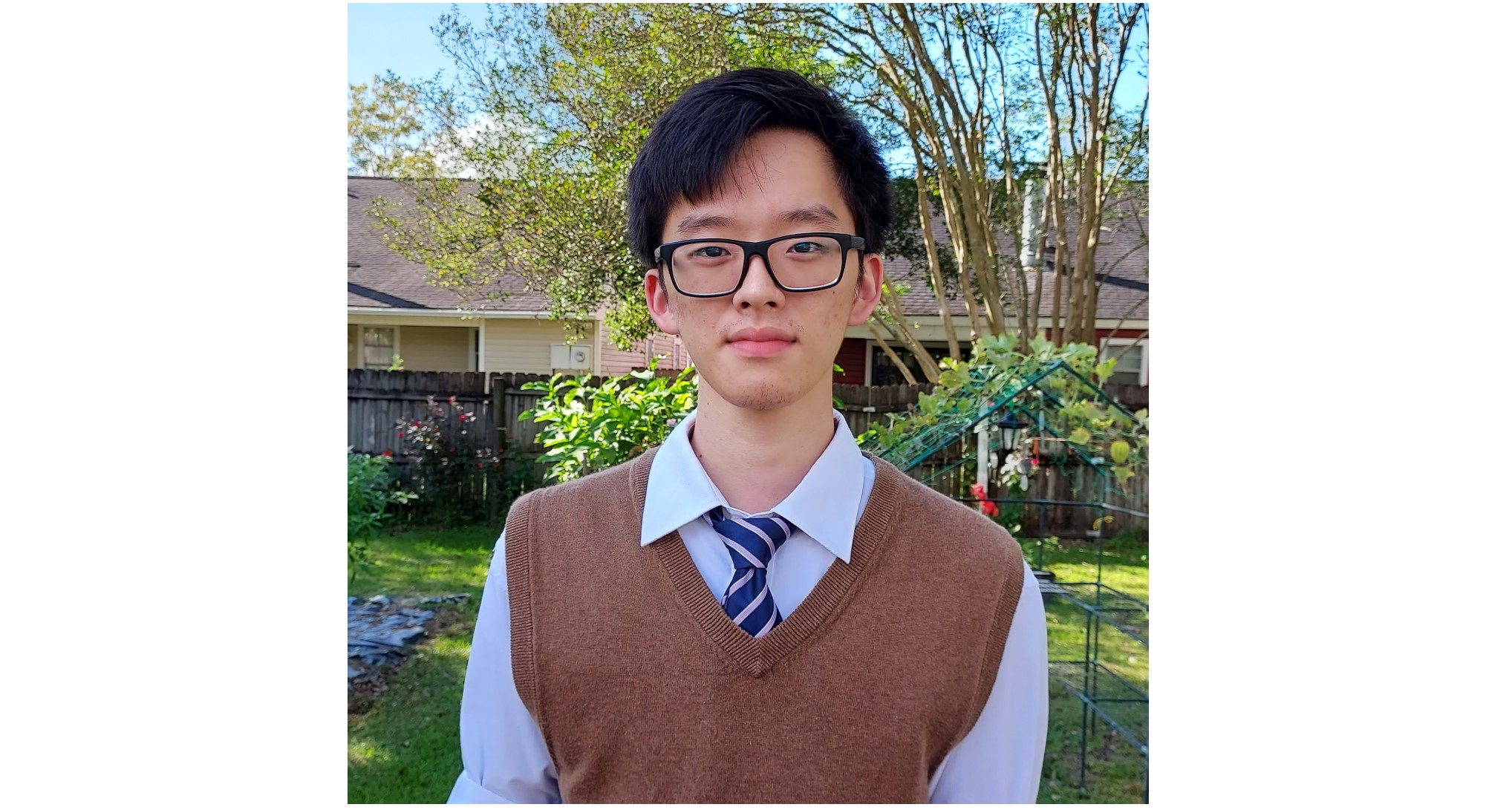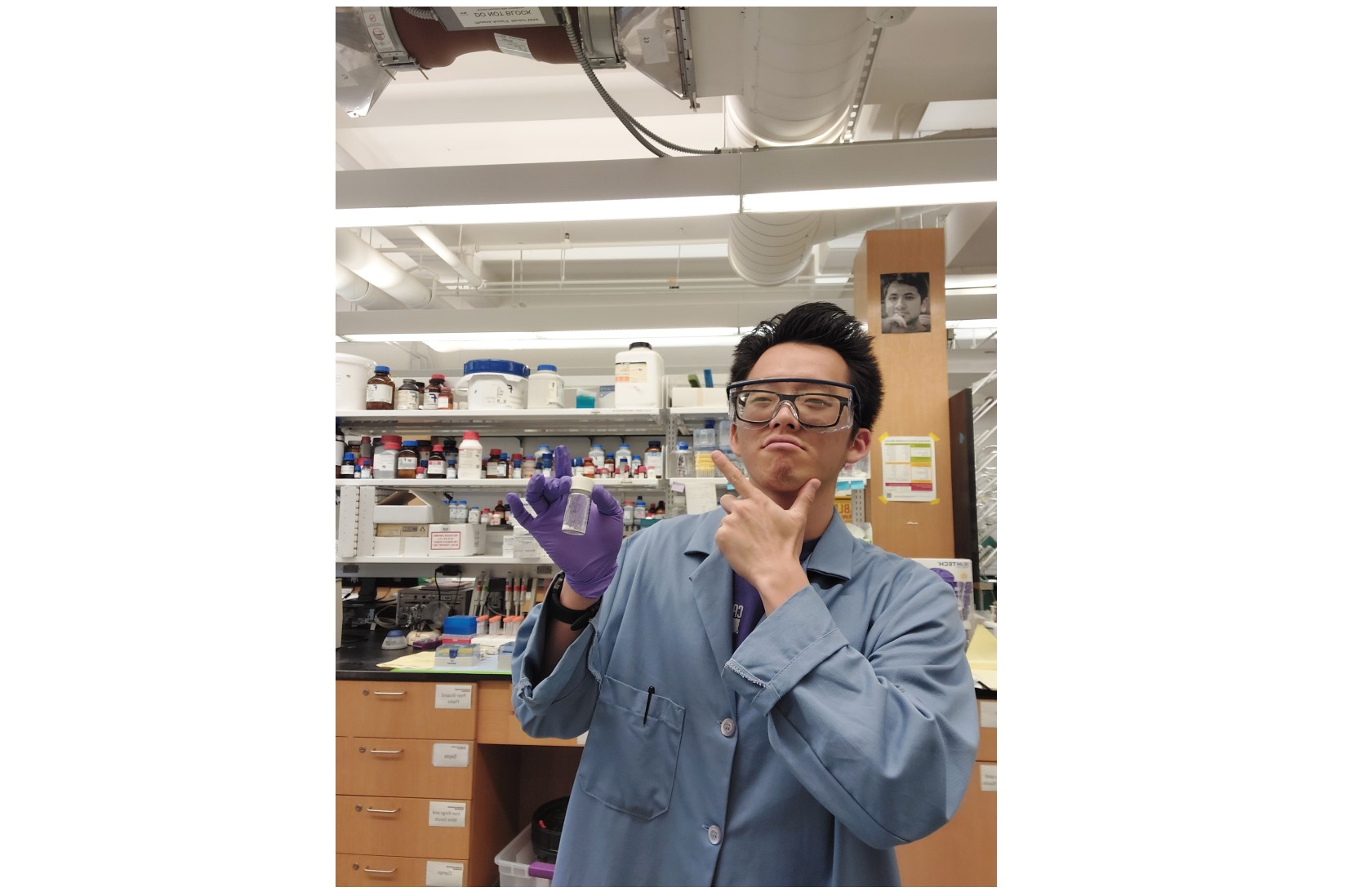
Heejoon Shin ('26), a Chemistry major, developed contrast agents to improve the use of biosensor for cancer detection under the mentorship of Dr. Ivan Dmochowski (Department of Chemistry). The research was supported by the Penn Undergraduate Research Mentoring Program (PURM).
During the summer, I had the amazing opportunity to work under Dr. Ivan Dmochowski to develop contrast agents for xenon biosensors. Current proton-based biosensors have limitations with their precision and lack of intricate details. With my graduate student mentor, Nathan Rudman, we developed xenon-binding iron-organic capsules used as contrast agents for xenon biosensors. These cages are easily synthesizable compared to other cryptophanes and cages. By developing these xenon-binding contrast agents to target specific proteins of interest, current magnetic resonance imaging (MRI) can exponentially improve in precision and can even detect early signs of cancer growth.
Initially, time management and organization were the most challenging for me. As a student, I am always busy with school or extracurricular activities. There is always something to do, whether it's club meetings, studying for exams, or completing problem sets. However, I didn’t realize how much waiting there would be during experiments. At first, it was a bit uncomfortable. With frequent 5 or 10 minutes of waiting, it wasn’t quite the best time window to read papers or sit around idly. Hence, I’ve learned to optimize my time through the help of my mentor. With frequent waiting periods, I’ve cleaned, set up other reactions, or even recorded observations in my lab notebook. However, doing miscellaneous tasks also required me to be attentive and organized since I didn’t want my original task to be left idle. I had to be on top of things, know which reactions were being conducted, and make sure I had a clear plan before I went into the lab.

As for technical skills, I learned purification techniques using column chromatography, different conditions for synthesis, and most importantly, how to crystallize my synthesized compound to isolate pure materials (photo above). For the crystallization technique, I mainly used the layering method, which utilized different liquid densities to our advantage. While my layers weren’t as perfect in the first few weeks, progressively, I began to develop steady hands and the confidence needed to be successful.
Most importantly, I was able to develop my critical thinking skills, especially by learning to look into the literature. As my favorite chemistry professor said, “It’s better to spend an entire day on literature, than to waste a week's worth of effort that progressed nowhere.” Although it may sound harsh, there is truth in that statement. It’s important to read what other scientists have done, integrate techniques, and enhance current analytical methods. Science is about communicating ideas, discovery, and advancing our knowledge; there is a reason why journals and articles are constantly being published. - Heejoon Shin
Interested in reading more first-hand accounts about undergraduate research? Check out the other experiences featured on our Student News Page and Social Media!
Related Articles
How Research Shaped My Career Goals
04/29/2024
Jackson Powell ('24), a Biochemistry and Biology double major, conducted research on neural repair and regeneration under the mentorship of Dr. Yuanquan Song (Department of Pathology and Laboratory Medicine). This research was supported by the…
Two Penn students awarded a 2024 Paul & Daisy Soros Fellowship for New Americans
04/17/2024
Min Jae Kim is pursuing an M.D./Ph.D. in the Perelman School of Medicine, and Zijian (William) Niu is a fourth-year in the College of Arts and Sciences.
Penn team of four undergrads awarded the Davis Projects for Peace grant
04/15/2024
The College of Arts and Sciences students lead a community health care project in Philadelphia.